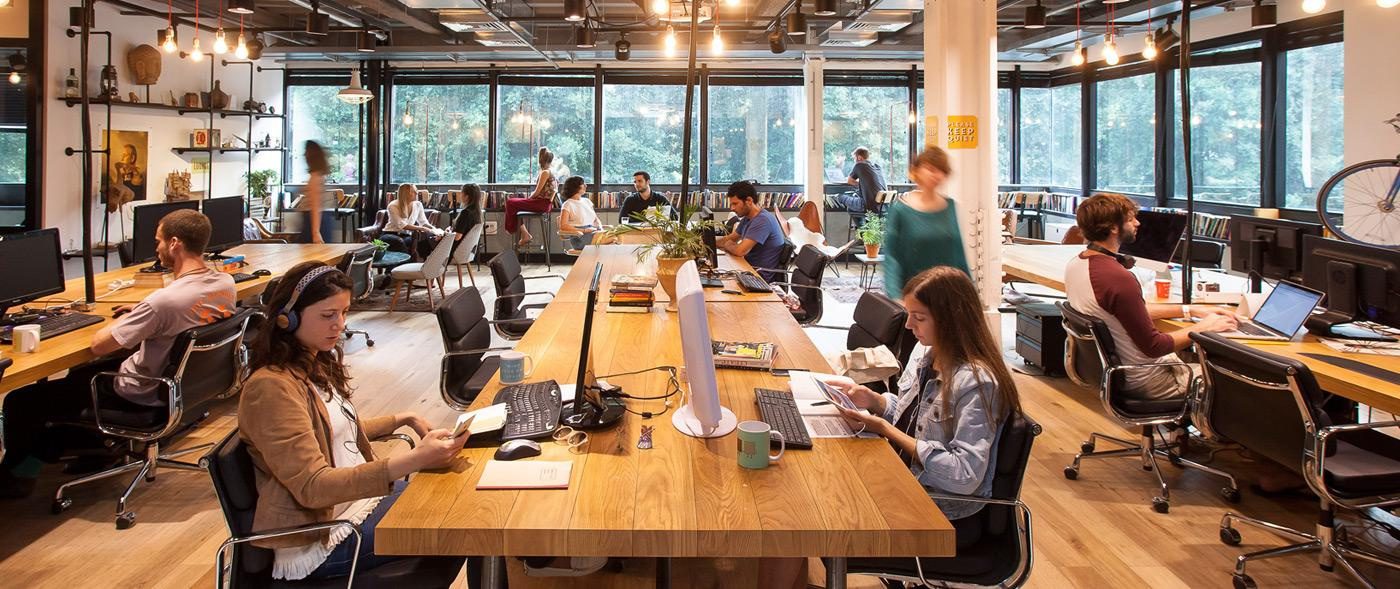Coworking spaces aren’t just about shared desks and free coffee anymore. They’re fast becoming the go-to choice for freelancers, startups, and even large companies adjusting to hybrid work.
A recent Markets and Data report shows that India’s coworking market is set to hit ₹20,000 crore by 2030. That’s no small number and it raises a real question: Is it worth joining one
In this blog, you’ll find a breakdown of the benefits, the hidden catches, and what to think about before signing up, especially if you’re considering a coworking space in major cities.
Contents
- 1 Understanding the Core Idea of Coworking
- 2 Productivity, Focus, and Work Environment
- 3 Location and Accessibility: Choosing the Right Space
- 4 Amenities and Services That Make a Difference
- 5 Networking and Community
- 6 Pricing and Plans: What Does It Really Cost?
- 7 Security, Privacy, and Reliability
- 8 Frequency of Use: Is It Worth the Commitment?
- 9 Location, Prestige and Expansion
- 10 Conclusion
Understanding the Core Idea of Coworking
Coworking has changed over the years. What started as a simple shared office concept is now a full work ecosystem—with private cabins, community events, meeting rooms, and support services.
Different people use coworking for different reasons. Freelancers come for structure. Small businesses want an affordable setup without long leases. Even big companies are using them for hybrid teams that don’t need traditional office space every day.
Instead of managing utilities, maintenance, and security yourself, coworking gives you a ready-to-use setup so you can just show up and start working.
Coworking isn’t about following a trend, it’s about picking a smarter way to work.
Productivity, Focus, and Work Environment
Working from home might seem convenient, but it comes with distractions—calls, chores, and the fridge that won’t stop calling your name. A coworking space offers a physical and mental boundary between personal life and work.
The act of getting ready and going to a coworking location creates a work rhythm. You’re surrounded by others who are also focused on their tasks. That shared energy often gives people the push they need to get through tough workdays. You don’t need to be part of someone else’s team to feel a sense of momentum in the room.
Noise can be a concern, but most well-designed coworking spaces now include quiet zones and phone booths. The idea is to create an environment that adapts to how you work, not the other way around.
Location and Accessibility: Choosing the Right Space
Where your coworking space is located matters more than most people think. A beautiful space in a far-off part of town won’t help much if your commute eats up your energy. The right location adds value to your day, not stress.
If you’re looking at a coworking space in New Delhi, you’ll notice a wide range in neighborhoods, pricing, and offerings. Central business districts might give you client-friendly addresses, while spots in quieter areas offer more relaxed setups. Think about where your team, clients, or partners are based and try to cut down on travel time for everyone involved.
Amenities and Services That Make a Difference
It’s not just about having a chair and desk. Coworking spaces now provide a long list of amenities and those can really affect your day-to-day experience.
You’ll find basics like high-speed internet, printing facilities, and air conditioning. But the better spaces go a step further. Think comfortable chairs you can sit in for hours, soundproof meeting rooms, good coffee, reliable tech support, and staff who genuinely care about the place running smoothly.
Let’s break it down:
Must-Have Amenities:
- Fast, stable internet
- Backup power and good lighting
- Meeting rooms with proper screens and speakers
- Basic kitchen or pantry setup
Useful Add-ons:
- Front-desk support and mail handling
- Locker facilities
- Lounges or chill-out zones
- Onsite events or networking mixers
You don’t need all the bells and whistles—but knowing what you value most can help you choose a space that feels right.
Networking and Community
One of the perks of coworking that often goes unnoticed is the natural flow of connections. When you work from home, you miss those casual conversations that can spark ideas or open doors. Coworking spaces, on the other hand, make it easy to meet people from different industries and backgrounds.
You don’t need to go out of your way to network. It happens over coffee, shared lunches, or at casual events. For freelancers or solo founders, this kind of informal exchange can be incredibly useful.
Pricing and Plans: What Does It Really Cost?
The good thing about coworking is that it’s not one-size-fits-all. You can pick what suits your work routine and budget. Some people only need a desk twice a week, while others want a full-time private cabin.
There are three main types of plans:
- Hot desks: You take any open seat for the day
- Dedicated desks: You get the same spot every time
- Private cabins: Small enclosed offices for teams or solo users
Security, Privacy, and Reliability
Coworking spaces aren’t just open rooms anymore. Security is taken seriously, especially in premium spaces. You’ll often find card-based entry, CCTV surveillance, and restricted access to certain areas.
If you handle sensitive data, private cabins or booths can provide the privacy you need. You can book meeting rooms in advance for client calls or internal discussions. Most setups also offer separate Wi-Fi networks with added encryption layers—just something to check before you commit.
Reliability isn’t just about safety. It’s about working without surprises—consistent service, working equipment, and clear rules.
Frequency of Use: Is It Worth the Commitment?
Coworking isn’t an all-or-nothing decision. If you’re only going to use it a few times a month, many providers have day passes or flexible packages. That way, you’re not paying for a seat you’re not using.
On the flip side, if your workweek is fully remote and you miss office structure, getting a monthly plan might be worth it. It all depends on how often you want to use the space and what you’re using it for. Writers, consultants, and coders might need quiet more than meetings, while marketers or designers may need rooms and collaboration zones.
The key is to match your work style with your plan, not the other way around.
Location, Prestige and Expansion
Some coworking brands give you access to their spaces across cities—or even countries. This can be a big advantage if you travel often or have remote teams spread across locations.
Also, having a professional-looking address in a premium part of the city, without paying full rent, is a big win for businesses that host clients or pitch regularly. It builds credibility while keeping things flexible.
If your work is scaling, coworking lets you grow at your own pace, add a desk when you need it, or move to a bigger cabin without changing your address.
Conclusion
Joining a coworking space in New Delhi or anywhere else is less about trends and more about how you want to work. Coworking is no longer a stopgap solution—it’s a solid alternative to traditional offices. With thoughtful design, real community, and plans that fit different work styles, these spaces can actually improve how you work.
Looking ahead, the best coworking spaces will keep evolving. They’ll focus on user experience, mental wellness, and meaningful collaboration. If you value flexibility, structure, and being around people who are building things, then yes, coworking is worth considering.



